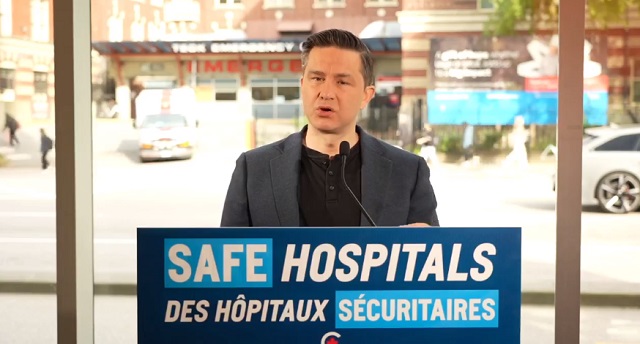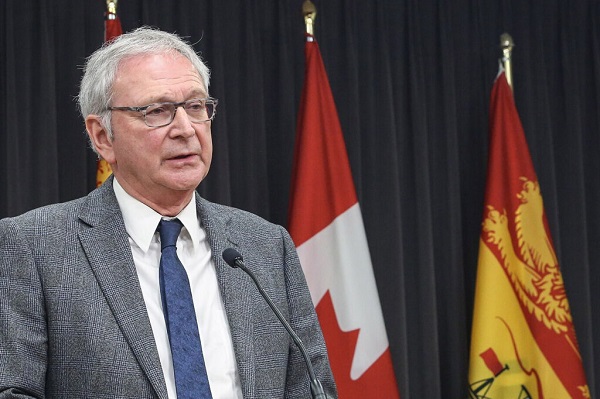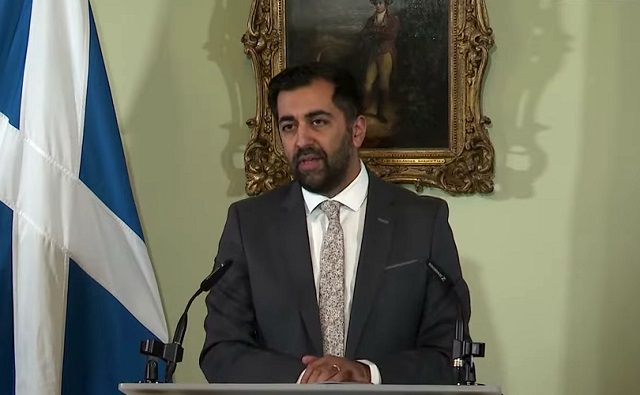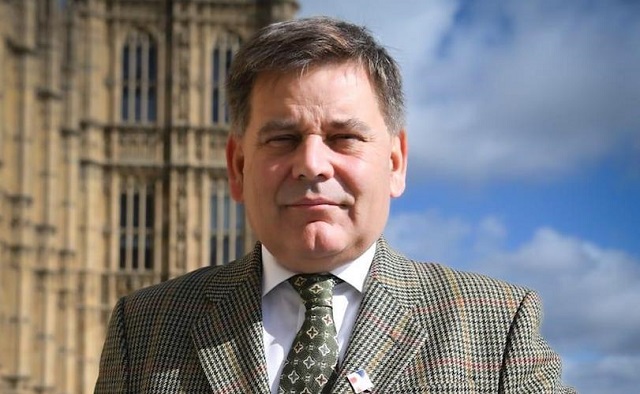Uncategorized
Barr questioning comes amid report of Mueller frustration

WASHINGTON — Attorney General William Barr will face lawmakers’ questions for the first time since releasing special counsel Robert Mueller’s Russia report and amid new revelations Mueller expressed frustration to Barr about how the report’s findings were being portrayed.
The Senate hearing promises to be a dramatic showdown as Barr defends his actions before Democrats who accuse him of spinning the investigation’s findings in President Donald Trump’s
Barr’s appearance Wednesday before the Senate Judiciary Committee is expected to highlight the partisan schism around Mueller’s report and the Justice Department’s handling of it. It will give the attorney general his most extensive opportunity to explain the department’s actions, including a press conference held before the report’s release, and for him to repair a reputation bruised by allegations that he’s the Republican president’s protector.
A major focus of the hearing is likely to be the Tuesday night revelation that Mueller told Barr, in a letter to the Justice Department and in a phone call, that he was frustrated with how the conclusions of his investigation were being portrayed.
Barr also is invited to appear Thursday before the Democratic-led House Judiciary panel, but the Justice Department said he would not testify if the committee insisted on having its lawyers question the attorney general.
Barr’s appearance Wednesday will be before a Republican-led committee chaired by a close ally of the president, Sen. Lindsey Graham of South Carolina, who is expected to focus on concerns that the early days of the FBI’s Russia investigation were tainted by law enforcement bias against Trump.
Democrats are likely to press Barr on statements and actions in the last six weeks that have unnerved them. The tense relations are notable given how Barr breezed through his confirmation process , picking up support from a few Democrats and offering reassuring words about the Justice Department’s independence and the importance of protecting the special counsel’s investigation.
The first hint of discontent surfaced last month when Barr issued a four-page statement that summarized what he said were the main conclusions of the Mueller report. In the letter, Barr revealed that he and Deputy Attorney General Rod Rosenstein had cleared Trump of obstruction of justice after Mueller and his team found evidence on both sides of the question but didn’t reach a conclusion.
Barr is likely to defend himself by noting how he released the report on his own even though he didn’t have to under the special counsel regulations, and that doing so fulfilled a pledge he made at to be as transparent as the law allowed. Barr may say that he wanted to move quickly to give the public a summary of Mueller’s main findings as the Justice Department spent weeks redacting more sensitive information from the report.
After the letter’s release, Barr raised eyebrows anew when he told a congressional committee that he believed the Trump campaign had been spied on, a common talking point of the president and his supporters. A person familiar with Barr’s thinking has said Barr, a former CIA employee, did not mean spying in a necessarily inappropriate way and was simply referring to intelligence collection activities.
He also equivocated on a question of whether Mueller’s investigation was a witch hunt, saying someone who feels wrongly accused would reasonably view an investigation that way. That was a stark turnabout from his confirmation hearing, when he said he didn’t believe Mueller would ever be on a witch hunt.
Then came Barr’s April 18 press conference to announce the release of the Mueller report later that morning.
He repeated about a half dozen times that Mueller’s investigation had found no evidence of collusion between the campaign and Russia, though the special counsel took pains to note in his report that “collusion” was not a legal term and also pointed out the multiple contacts between the campaign and Russia.
In remarks that resembled some of Trump’s own claims, he praised the White House for giving Mueller’s team “unfettered access” to documents and witnesses. He suggested the president had the right to be upset by the investigation, given his “sincere belief that the investigation was undermining his presidency, propelled by his political opponents, and fueled by illegal leaks.”
It remained unclear Tuesday whether Barr would appear before the House committee. That panel’s Democratic chairman, Rep, Jerrold Nadler of New York, said witnesses could too easily filibuster when questioned by lawmakers restricted by five-minute time limits. Having lawyers do the questioning enables the committee “to dig down on an issue and pursue an issue.”
“And it’s not up to anybody from the executive branch to tell the legislative branch how to conduct our business,” Nadler said.
The committee will vote on allowing staff to question Barr at a separate meeting Wednesday, at the same time Barr takes questions from the Senate.
The top Republican on the House Judiciary panel, Georgia Rep. Doug Collins, sharply criticized the plan. Nadler “has taken a voluntary hearing and turned it into a sideshow,” Collins said.
The Justice Department’s stance appears consistent with the Trump administration’s broader strategy of “undermining Congress as an institution,” said Elliot Williams, who previously served as deputy assistant attorney general in the department’s legislative affairs office in the Obama administration.
He said that if he were still advising an attorney general, he would resist the idea of staff questioning a Cabinet official. “It’s a rational response to not want them questioning the attorney general,” Williams said.
That said, Williams added, “It’s an incredibly common practice in the House of Representatives and was a practice long before President trump or William Barr took their offices and will be a practice long after they’re gone.”
Eric Tucker And Mary Clare Jalonick, The Associated Press
Uncategorized
RCMP recruitment failure has Alberta advocacy group calling for Provincial Police Service

News release from Free Alberta Strategy (A Strong And Sovereign Alberta Within Canada)
“Make no mistake, we are paying for these services that we aren’t receiving. Alberta’s taxpayers are paying tens of millions of dollars for nearly 400 vacant RCMP officer positions – for boots that are not on the ground.”
A recent report from the Royal Canadian Mounted Police (RCMP)’s independent Management Advisory Board had findings that are nothing short of alarming:
“Federal policing has now arrived at a critical juncture of its sustainability, which present risks for the national security and safety of Canada, its people, and its interests,” says the report.
After over a year of diligent study, the Board has been tirelessly firing off flares, signalling to all who will listen: the very foundation of our national public safety apparatus may be at risk of faltering.
This is doubly problematic because, as you well know, the RCMP is also responsible for boots-on-the-ground policing in large parts of the country, including many rural and remote areas – including in Alberta.
Rural crime has been a longstanding issue in Alberta, and social disorder continues to make headlines nightly.
Alberta Minister of Public Safety, Mike Ellis, took to social media platform X (formerly known as Twitter) to express his opinion:
“The independent report finds the RCMP has struggled in recent years to recruit and retain regular members, a problem that’s particularly acute in federal policing. This is not about the hard-working men and women on the frontline: they are doing everything they can. The reality is the RCMP do not have enough officers to police communities in Canada effectively.”
Ellis has been ahead of this story for months now.
In March, Ellis stated that:
“… on average, Alberta has an RCMP officer vacancy rate of 20 per cent. This means that Alberta is only being served by 1,522 of the 1,911 RCMP officers that the federal government has authorized for Alberta.”
“Make no mistake, we are paying for these services that we aren’t receiving. Alberta’s taxpayers are paying tens of millions of dollars for nearly 400 vacant RCMP officer positions – for boots that are not on the ground.”
The consequences of this capacity crisis are far-reaching.
Not only does it jeopardize the safety of Albertans, but it also undermines the credibility of Canada’s federal police force on the international stage.
With limited resources and personnel, the RCMP’s ability to address pressing national and global security concerns is severely compromised.
The Management Advisory Board, created in 2019 by the federal government to provide external advice to the RCMP commissioner, set up a task force in the fall of 2022 to study the federal policing program.
Overall, the report says budget and personnel shortfalls have left the RCMP “operationally limited,” restricting the number of cases it can take on annually.
Here are some more highlights from the report:
“Canada and its people have already begun to see the repercussions of the federal policing program being stretched thin.”
“Federal policing’s overall eroding capacity may have implications for the credibility of Canada’s federal police force and its investigations on the international stage.”
“Ultimately, this may influence Canada’s overall approach and standing in international politics, including its ability to advance global priorities.”
Clearly, we cannot afford to wait any longer.
Municipalities can ease the burden on our national security services by establishing municipal policing.
Several cities in Alberta already have their own police authorities, and the provincial government is providing funding for others interested in exploring this option.
Grande Prairie is already in the process of establishing their own municipal police service.
No word on how many other municipalities have taken the government up on their offer.
Unfortunately, President of Alberta Municipalities Tyler Gandam (also Mayor of Wetaskiwin) is featured prominently on the National Police Federation’s “Keep Alberta RCMP” website.
Interestingly, the Keep Alberta RCMP website doesn’t mention the fact that the advisory board even exists.
It doesn’t mention the report.
The notion that our federal policing infrastructure teeters on the brink of instability while Gandam appears to be asleep at the wheel, is deeply disconcerting.
The safety and security of Albertans must remain our top priority.
We cannot afford to wait any longer.
The time has come for the province to take swift and decisive measures to bolster policing capabilities in Alberta.
It’s time for Alberta to seriously consider the establishment of an Alberta Provincial Police Service.
It has been one of the core tenets of the Free Alberta Strategy.
If you agree, please reach out to your municipality and ask them to take steps to protect your community.
Together, we can keep Alberta safe.
Regards,
The Free Alberta Strategy Team
P.S. We’re hoping you’ll consider contributing to our cause. Your generous donation helps us make a positive impact in our community. No need to worry about any hold-ups or threats here. We’re just passionate about making a difference, and your support goes a long way in helping us achieve our goals.
Uncategorized
Making Alberta a geothermal energy leader

Eavor announces it’s the #1 geothermal energy startup company in the world – January 2024
Alberta is creating Canada’s first geothermal test site to advance drilling innovation, reduce emissions and create jobs.
Geothermal energy uses naturally occurring heat within the earth to heat water and buildings and generate power, with few emissions or environmental impacts. Alberta has vast pockets of heat below ground, making the province Canada’s geothermal leader, but testing and developing new technologies can be a barrier for many companies. Unlike the United States, Japan and other countries, Canada does not currently have an open-access test site to help spur innovation.
Alberta is taking the first steps to create a new Alberta Drilling Accelerator. This groundbreaking facility would be the first of its kind in Canada, establishing Alberta as a global hub for geothermal technology. This will drive new innovations in geothermal and other clean energy projects that can reduce emissions and power communities around the world.
To kick-start the project, the Alberta government is investing $750,000 to conduct a feasibility study led by Calgary-based Eavor Technologies and other stakeholders. The study is the first step in assessing the proposed facility. It will include identifying a site, business planning, research on the governance model, an economic impact analysis and stakeholder engagement that will lay the groundwork for the initial planning stages of the project.
“Alberta has been a global energy leader for more than a century, renowned for our skilled workforce, innovation and one of the largest oil and gas reserves on the planet. The proposed Alberta Drilling Accelerator presents enormous potential to help our province lead the next wave of energy projects here at home and around the world that reduce emissions, create jobs and enhance energy security.”
The Alberta Drilling Accelerator would help companies test out and develop new geothermal drilling techniques or technologies to reduce emissions and drive growth across the clean energy sector. It would be an open-access, technology-agnostic drilling test facility capable of drilling in challenging environments, including deep depths, high temperatures and different rock types.
The accelerator also would help speed up the development of carbon capture, utilization and storage; helium; critical minerals; and other clean technologies and commodities that rely on Alberta’s drilling sector. All of this helps attract investment and bring new technologies to scale in Canada.
“With cumulative geothermal investment poised to reach $1 trillion by 2050, a geothermal arms race is very much underway to commercialize novel drilling techniques that accelerate geothermal development – exhibited by testing facilities in the United States, China and Iceland. As Canada’s first geothermal test bed, the Alberta Drilling Accelerator will help bring geothermal technologies to scale, supporting companies like Eavor. We commend the Government of Alberta for this bold initiative.”
“We are proud to witness Eavor, a CDL-Rockies alumni company, create new opportunities for innovators like themselves to advance the adoption of energy transition technologies like geothermal. The Alberta Drilling Accelerator will further solidify Alberta’s position as a leader in the global sustainable energy landscape.”
If the feasibility study shows the facility is economically and environmentally viable, and if the project is approved by the Alberta government, the facility will start taking shape at the selected site and drilling could start as early as 2025.
“Canada is home to the most advanced drilling technology in the world. Not only do our members support the responsible development of oil and gas, but we are integral in the extraction of new energy resources like geothermal and critical minerals. Our workers are at the epicentre of Canada’s energy transformation. Our people, technology and processes are leading the way towards a more diverse energy future. The Alberta Drilling Accelerator is a government-enabled policy approach to expand Alberta’s drilling capacity and reach its full potential as the world’s most diverse and technologically advanced producer and exporter of sustainable energy and critical minerals.”
“The Alberta Drilling Accelerator is a testament to Alberta’s innovative and entrepreneurial spirit. Leveraging our oil and gas sector expertise, Alberta is poised to become the global leader in developing new geothermal technologies that will play an integral role in reducing emissions while supporting job creation.”
Quick facts
- The Canadian Association of Energy Contractors estimates that one active drilling rig, whether drilling for natural gas or geothermal, creates approximately 220 direct and indirect jobs and
$1 million in tax revenue. - In 2019, Eavor received $2 million in provincial funding through Emissions Reduction Alberta and Alberta Innovates for the world’s first closed-loop geothermal system.
Related information
-

 COVID-191 day ago
COVID-191 day agoMore victories for freedom as ArriveCAN charges dropped and fines reduced
-

 COVID-191 day ago
COVID-191 day agoTrudeau government only sought legal advice after Emergencies Act was invoked, records indicate
-

 Brownstone Institute2 days ago
Brownstone Institute2 days agoThe WHO’s Proposed Pandemic Agreements Worsen Public Health
-

 Alberta1 day ago
Alberta1 day agoProvince announces next step to revamped health care system
-

 Health2 days ago
Health2 days agoTHE WPATH TAPES: Behind-The-Scenes Recordings Reveal What Top Gender Doctors Really Think About Sex Change Procedures
-

 COVID-192 days ago
COVID-192 days agoTrudeau’s public health agency recommends another experimental COVID booster
-

 Addictions2 days ago
Addictions2 days agoPoilievre attacks decriminalization of hard drugs with Safe Hospitals Act
-

 Uncategorized2 days ago
Uncategorized2 days agoRCMP recruitment failure has Alberta advocacy group calling for Provincial Police Service







